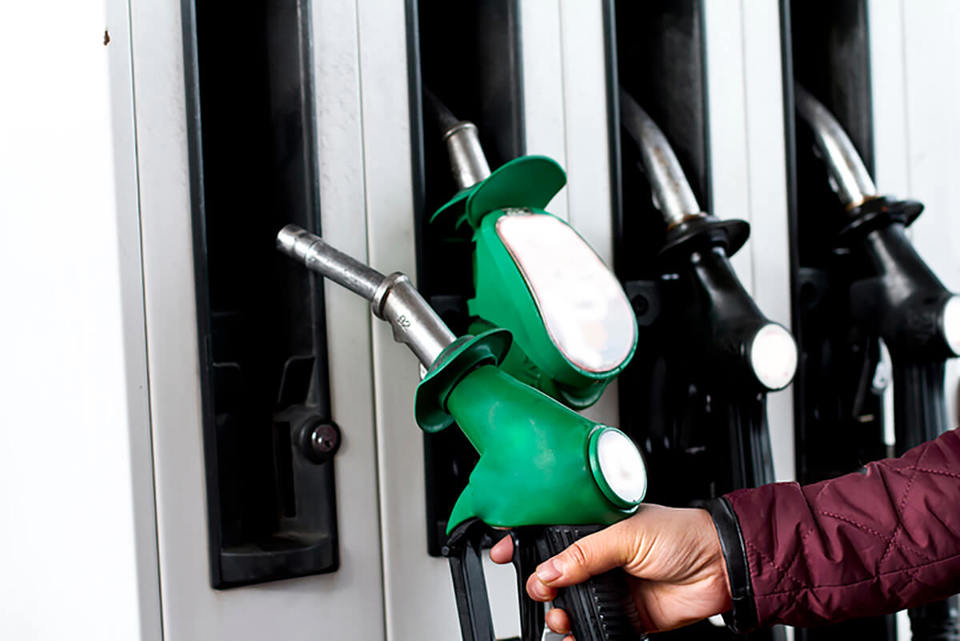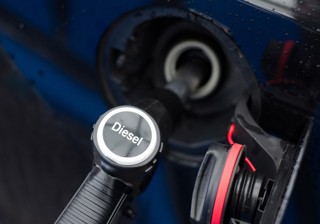The average price of fuel rose for the fourth month in a row in May making petrol 11p a litre more expensive than it was at the beginning of February and diesel 7p dearer.
Data from RAC Fuel Watch reveals petrol went up by another 2.34p to 130.57p in May, while diesel increased by 1.74p to 135.54p.
At the beginning of February, a litre of unleaded cost an average of 119.54p and diesel was 128.64p.
The last time unleaded was more expensive than this was July 15, 2014, (131.61p). Diesel hit 136.94p a litre on October 30, 2018 – prior to that it was last this high on March 10, 2014 (137.17p).
The May pump price increases mean the cost of filling a diesel 55-litre family car went up by 96p to £74.55 – £3.80 more than four months ago.
The diesel rise is particularly frustrating, says the RAC, as the wholesale price has merited substantial forecourt cuts for some weeks.
A tank of petrol for a petrol car now costs an average of £71.81 – an increase of £1.29 in May and £6 more than at the start of February.
The rise in forecourt prices has been caused by a continued increase in wholesale prices.
May unfortunately saw the bad combination of a slightly higher oil price and a weakening pound.
The price of crude oil traded well above $70 a barrel for most of the month and the pound lost ground on the dollar, falling from $1.30 to $1.26 – a 4% drop.
However, by the end of the month oil had fallen to $65 (-9%) – a price not seen since mid-March, perhaps signalling some much-needed price easing at the pumps.
RAC fuel spokesman Simon Williams said: “May was another miserable month for drivers with the fourth straight average price rise of both petrol and diesel taking us near to a five-year high.
“Luckily though, oil closed out the month 9% lower at $65 which should soon translate to lower prices at the pumps.
“After suffering a steady flow of daily fuel price increases because of rising wholesale costs we urge retailers to reflect this sudden drop in the price of oil by cutting their prices as soon as possible.”
RAC says that the supermarkets who buy fuel more often than smaller retailers due to the large volumes they sell should be able to do this straightaway.
Williams continued: “The price of diesel has been over-inflated for more than a month. In fact, the wholesale price of diesel has now been lower than petrol since 17 May, yet there is currently an average difference of 5p between the two on our forecourts.
“Consequently, there is scope to cut the price of diesel by at least 6p a litre. In reality, however, the majority of retailers will no doubt refuse to do this and instead continue to use the saving from the lower diesel wholesale price to subsidise the ‘headline’ petrol price with a view to attracting more customers to their forecourts and stores.”
Looking at the bigger picture, until late in May the outlook for fuel prices appeared bleak, but for once the notorious volatility of the oil price might just work in favour of drivers as there are fears supply may start to outstrip demand.
This is due to a possible global economic slowdown being sparked by the US’s trade wars with China and Mexico as well as it producing record levels of crude oil.
Williams said: “OPEC, the Organization of the Petroleum Exporting Countries, and its partners could still put a fly in the ointment as a meeting is scheduled in Vienna for the end of June to discuss production levels.”
The alliance has been working together on limiting oil production since early 2017 but increased its curbs at the beginning of this year.
Williams concluded: “If they were to decide to go still further this would serve to prop up the barrel price, which inevitably won’t be good news for motorists.”
Regional fuel price variation
Regional average unleaded pump prices
The North East saw the largest monthly price increase in the UK with 2.71p, taking a litre to 130.25p. London started May with the most expensive unleaded at 129.29p but the South East had the dearest petrol by the end of the month at 131.41p.
Northern Ireland was the cheapest throughout May, finishing the month with an average price of 128.99p.
|
Unleaded |
01/05/2019 |
30/05/2019 |
Change |
|
UK average |
128.23 |
130.57 |
2.34 |
|
North East |
127.54 |
130.25 |
2.71 |
|
East Midlands |
127.90 |
130.45 |
2.55 |
|
North West |
127.72 |
130.19 |
2.47 |
|
Wales |
127.27 |
129.68 |
2.41 |
|
Scotland |
128.08 |
130.48 |
2.40 |
|
South East |
129.07 |
131.41 |
2.34 |
|
West Midlands |
127.99 |
130.31 |
2.32 |
|
Northern Ireland |
126.68 |
128.99 |
2.31 |
|
South West |
128.35 |
130.64 |
2.29 |
|
Yorkshire And The Humber |
127.69 |
129.96 |
2.27 |
|
East |
128.72 |
130.88 |
2.16 |
|
London |
129.29 |
131.33 |
2.04 |
Regional average diesel pump prices
The East Midlands endured the biggest increase in the cost of diesel with a litre going up to 135.81p on the back of a 1.95p rise.
The South East had the most expensive diesel at 136.46p and Northern Ireland the cheapest at 132.56p. Northern Ireland also had the smallest monthly increase at 1.31p a litre.
|
Diesel |
01/05/2019 |
30/05/2019 |
Change |
|
UK average |
133.80 |
135.54 |
1.74 |
|
East Midlands |
133.86 |
135.81 |
1.95 |
|
West Midlands |
133.50 |
135.42 |
1.92 |
|
North West |
133.50 |
135.35 |
1.85 |
|
Yorkshire And The Humber |
132.96 |
134.79 |
1.83 |
|
South East |
134.69 |
136.46 |
1.77 |
|
Scotland |
133.90 |
135.60 |
1.70 |
|
East |
134.80 |
136.43 |
1.63 |
|
Wales |
133.44 |
135.07 |
1.63 |
|
North East |
132.84 |
134.46 |
1.62 |
|
South West |
134.08 |
135.68 |
1.60 |
|
London |
134.22 |
135.69 |
1.47 |
|
Northern Ireland |
131.25 |
132.56 |
1.31 |






















Login to comment
Comments
No comments have been made yet.